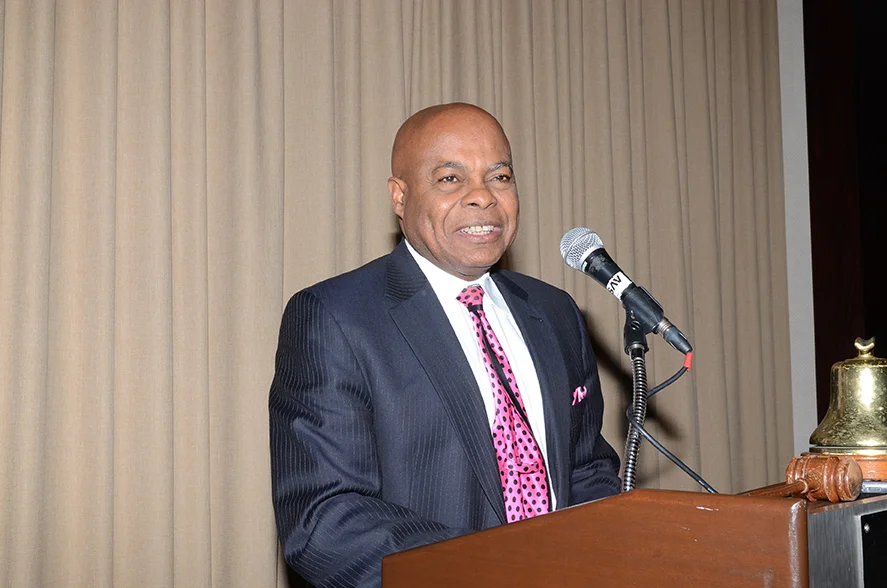Law Society names Toronto’s first female Black bencher
A decade ago, Tanya Walker was called to the bar after graduating from Osgoode Hall Law School.
When the Law Society of Upper Canada (LSUC) convocation reconvenes in September, she will reach another milestone by becoming the first female Black lawyer in the city to be a bencher.
The LSUC is governed by a board of directors – they are the benchers – who meet monthly in convocation meetings to set policy and determine other matters related to the governance of Ontario’s lawyers and paralegals. Benchers also sit on panels as adjudicators to hear discipline cases concerning lawyer and paralegal conduct, licensing, competence and capacity.
Walker was among 97 candidates in the last bencher elections in April 2015. She finished 22nd in the city with 2,871 votes. Voters elect 20 benchers from inside Toronto and 20 from outside the city.
When litigator Paul Schabas was elected the Ontario Law Society treasurer last month replacing Janet Minors, Walker automatically moved up into the esteemed role.
Treasurers do not hold office as elected benchers.
“I think it’s important to have diversity on the bench,” said Walker who graduated from McMaster University in 2002 with a business degree. “I believe that my experience as an adjudicator, litigator and business owner will assist the law society resolve some of its issues relating to access to the profession, efficiencies in the judicial system, fiscal prudence and diversity.”
Professional mediator and adjudicator Patricia DeGuire isn’t surprised that Walker is a member of convocation that regulates the province’s 50,000 lawyers and 8,000 paralegals.
“I have known Tanya since her law school days and, since that time, I have pegged her as someone to watch,” DeGuire, who co-founded the Julius Alexander Isaac Scholarship for students enrolled in the University of Windsor’s Faculty of Law, said. “She pursues excellence, she is assertive, poised and shows inner strength that’s always accompanied by her hallmark smile. Tanya is a youthful paragon of professional excellence, an entrepreneur, avid volunteer and activist. Those characteristics will have marked influence not only on Generation X and millennial Black female lawyers, but also young Black women, in particular those of color in the larger communities.”
Walker opened her own law firm – Walker Law Professional Corporation – on Bay St. six years ago after practicing commercial and civil litigation at a downtown firm.
DeGuire compared Walker’s business savvy to self-made millionaire African-American entrepreneur Madam C.J Walker.
“Tanya’s skills will bode her well as a bencher,” she added. “She may add to the legitimacy of the LSUC’s objectives on equality, in particular diversity and inclusion and the retention of women in the legal profession.”
Former Canadian Association of Black Lawyers (CABL) president Frank Walwyn said Walker’s promotion to the bench is a statement of the high regard in which she’s held by her colleagues in the legal profession.
“As lawyers, we have a duty to protect the public’s interest,” he said. “We entrust the oversight of this duty and of our governance and discipline to a select group of individuals we elect as benchers who assume great responsibility in governing the profession. We have to remember that only a few are chosen from among the tens of thousands of lawyers who are members of the bar. It’s an awesome accomplishment for Tanya as a young and Black female member of our legal community to be chosen by her peers for this important role. She continues to be an inspiration and role model for us all and we applaud her achievement.”
Former CABL president Arleen Huggins is confident that Walker, who is an active member of CABL and the National Bar Association which is the largest Black lawyers association in the United States, will make her mark in the new position.
“With Tanya’s election as Toronto’s first Black female bencher, we have achieved increased diverse representation at a time when the Law Society is addressing issues such as challenges faced by racialized licensees, the impact of the law practice program on racialized law students and demographic data collection from legal entities and other important issues,” she pointed out.
“I believe that Tanya will make an excellent addition to diverse representation within the law society and provide an important gender and racial perspective on these as well as numerous other issues of significance to the legal profession and to the public.”
Born in Toronto to Jamaican immigrants, Walker – 38 – was the recipient of the CABL Traditional Law Practice Award at the organization’s 19th annual gala last October.
Former broadcast journalist Hope Sealy, who migrated from England in 1989, was appointed a lay bencher in Toronto in 1992 by the lieutenant governor in council.
The late Leonard Braithwaite, who was also the first Black elected to a Canadian parliament, was the first Black to be elected a bencher in 1999. Since that time, University of Ottawa law professor Joanne St. Lewis, civil rights lawyer Julian Falconer and Northern Ontario attorney Jack Braithwaite have joined the fold.






